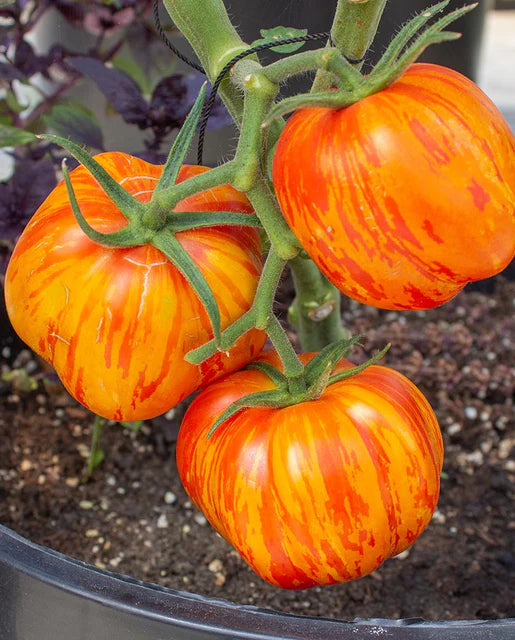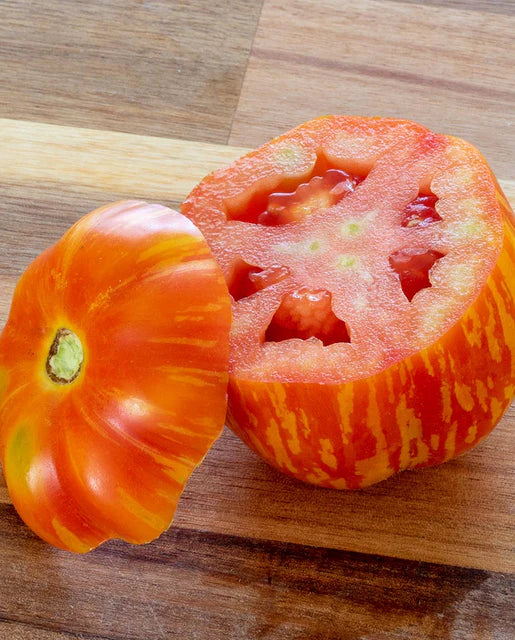West Coast Seeds
West Coast Seeds (Get Stuffed Organic)
West Coast Seeds (Get Stuffed Organic)
Couldn't load pickup availability
CERTIFIED ORGANIC! Large, substantial fruits grow in clusters of three to four on sturdy, relatively short vines. Get Stuffed Organic features blocky, striped fruits that are almost the shape of a bell pepper. They can be hollowed and stuffed for cooking, or used raw as a delicious, edible serving vessel. They were a big hit in our tomato trials and are worth growing for their beautiful appearance alone.
| Difficulty | Moderately challenging |
| Exposure | Full-sun |
| Sprouting | 7-14 days |
| Matures | 75 days |
| Seed Type | Open Pollinated |
| Starting |
Sow seeds 5mm-1cm (¼-½”) deep. Keep seedlings under very bright light to prevent legginess. You may have to pot on seedlings more than once before they go out to allow for root growth. Space bush (determinate) transplants 45-60cm (18-24″) apart and vine (indeterminate) types 50-75cm (20-30″) apart in rows 1m (3′) apart. |
| Growing |
Ideal pH: 6.0-6.8. Tomatoes like fertile, well drained soil that is rich in organic matter. Dig in finished compost and manure, and add 1 cup balanced organic fertilizer beneath each transplant. The nutrition from heavy clay soils is excellent for tomatoes, but they are slow to warm, so transplanting should be done later. By the same token, lighter soils warm more quickly, so transplants can go out sooner. Adding glacial rock dust will supply all the calcium they will need. Regular watering is vital, but don’t let the plants sit in water. Tomatoes are tropical plants so they require full sun and lots of heat. Vine varieties will require some kind of support such as a wire to grow up, or a trellis to be tied to as the plant grows. Bush types benefit from the support of a tomato cage in order to prevent sprawling. At the time of final transplant, plants can be buried up to their first pair of true leaves. This will encourage greater root growth, helping with both nutrient uptake and the plants’ ability to stand up to dry conditions. Stop watering around the end of July to encourage the fruit to ripen. If tomato plants are grown under cover, you can encourage pollination and fruit set by tapping the stem from time to time. Tomatoes do not rely on insects for pollination. Vibrating the plant shakes pollen loose within the flowers, which then self-pollinate. |
| Germination Rate | 75% |
| Seed Life | 3 years |
Substantial fruits with thick walls
Best choice for stuffing
Indeterminate (vine)




